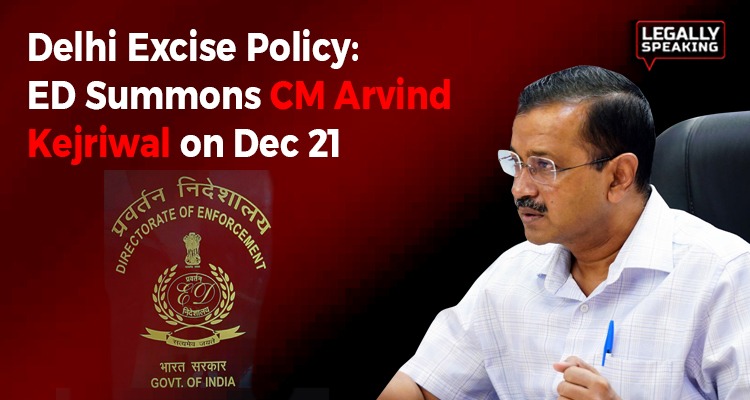
The Enforcement Directorate (ED) has summoned Delhi Chief Minister Arvind Kejriwal for December 21 in connection with the excise policy case.
This summons coincides with Kejriwal’s plans to embark on a 10-day Vipassana meditation course starting December 19, following the conclusion of the winter session of the Delhi Assembly.
Vipassana, an ancient Indian meditation technique, involves practitioners refraining from communication, be it verbal or through gestures, for an extended period to promote mental well-being. Chief Minister Kejriwal, a long-time practitioner of Vipassana, has participated in the ancient meditation system in various locations, including Bengaluru and Jaipur, over the years.
It is an annual tradition for Kejriwal to undertake a 10-day Vipassana course, and this year is no exception, with the course scheduled from December 19 to 30.
Earlier, on November 2, the federal agency had summoned Kejriwal for questioning regarding alleged irregularities in the now-defunct excise policy. On April 16 of this year, the Central Bureau of Investigation (CBI) questioned Kejriwal for over nine hours in connection with the same case.
In a related development, two prominent Aam Aadmi Party leaders, Manish Sisodia and Sanjay Singh, are currently in custody in connection with the money laundering case linked to the Delhi liquor scam. Sanjay Singh, a Rajya Sabha representative of the party, was arrested on October 4 after the Enforcement Directorate conducted raids at his premises in connection with the Delhi excise policy-linked money laundering case.
Sisodia, initially arrested by the CBI on February 26 for his alleged involvement in the scam, resigned from the Delhi Cabinet on February 28. Subsequently, the ED arrested him on March 9 from Tihar Jail, where he is currently in judicial custody. In a nearly 270-page supplementary charge sheet, the ED has labeled Sisodia a “key conspirator” in the case.
The Delhi government had implemented the policy on November 17, 2021, but revoked it at the end of September 2022 amidst corruption allegations. Investigating agencies assert that the new policy led to increased profit margins for wholesalers, from five to 12 percent. While agencies claim that the new policy resulted in cartelization and favoritism towards ineligible entities for liquor licenses for financial gain, the AAP-led Delhi government and Manish Sisodia have consistently denied any wrongdoing, contending that the new policy aimed to boost Delhi’s revenue share.




